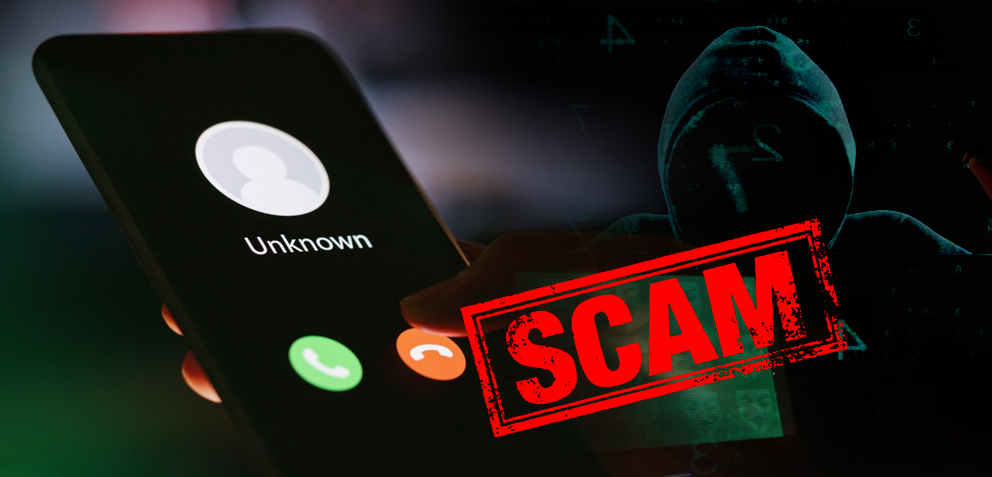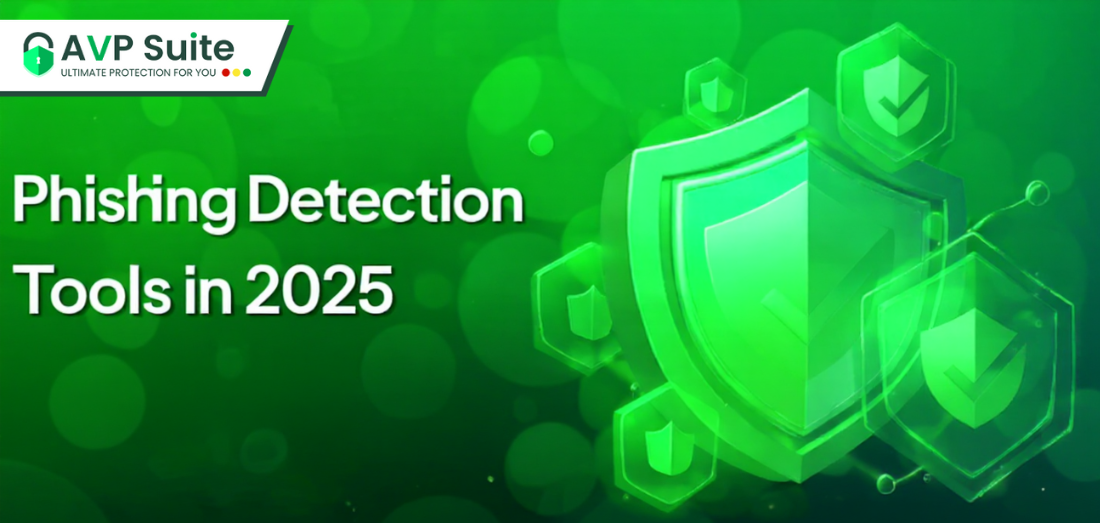
Vishing Scam: How AVP Suite Protects You from Identity Theft
February 11,2025
6 mins
Sophia was having a typical day while sipping her usual coffee when she got a call, and it was from her “bank”. The polite voice assured her that some problem required urgent verification. Terrified, she provided all the details–only to find out later that she had just fallen prey to a voice phishing scam. In a matter of hours, her entire savings vanished.
Vishing (voice scams) are increasing, tricking people into confirming sensitive personal data. Cybercriminals sound convincing, making identity theft simpler than ever. But don’t worry—AVP Total Security offers identity fraud protection to shield you from these deceptive tactics.
Want to know how?
Well, this comprehensive guide will guide you through vishing, its various types, how these attacks work, and, most importantly, how you can protect yourself.
So, let’s dive in!
| Table of Contents!
What is Vishing?: Overview Common Types of Vishing Attacks How Does a Criminal Accomplish a Vishing Scam? How to Prevent Vishing Attacks How AVP Suite Can Help in Protecting Against Vishing Attacks Final Thoughts |
What is Vishing?: Overview
Vishing is simply voice phishing, a type of hacking in which hackers either call victims over the phone or trick them through voicemail messages to give out personal information such as credit cards, social security numbers, account logins, and so on.
The difference between vishing and other scams, such as smishing (SMS phishing) or phishing via email, is that vishing plays on the familial touch of a phone call. Most times, it pretends to be a bank, government agency, or something of that nature and acts to get the victim into a state of panic or urgency so that they take hasty action.
Even recent studies reveal that vishing attacks have increased by 40% in the past year, making understanding and preventing these scams more crucial.
Common Types of Vishing Attacks
Cybercriminals use several vishing tactics to achieve their goals:
- Banking Scams
Fraudsters impersonalize themselves as representatives of a financial institution (bank) that there is trouble with your account. They are usually required to verify identification or transfer funds for credit card fraud scams or to steal identity.
- Government Impersonation
Attackers could fake being tax officers or law enforcement officials and threaten legal action unless you immediately provide them with sensitive information.
- Tech Support Scams
Cybercriminals pretend to be technical support agents, claiming your device is inflamed with malware. They offer to “repair” the issue, only to install malicious software programs or steal your data.
- Charity and Disaster Relief Scams
Exploiting your empathy, scammers ask for donations during emergencies or natural disasters, often using vishing to gather your credit card information.
- Dark Web Scams
Some attackers claim to have compromising information about you obtained from a data breach. They demand a ransom to avoid releasing the data on the dark web.
Related Read: How Thelma’s Voice Scam Became a Movie and Why You Should Be Concerned
How Does a Criminal Accomplish a Vishing Scam?
Vishing attacks typically follow a systematic process:
- Initial Contact:
You receive a dangerous phone call from someone claiming to be from a reputable business enterprise. The call is made pleasantly and may even spoof caller ID to appear valid.
- Establishing Trust:
The scammer employs social engineering methods, using details like your name or the latest transactions (sometimes gathered from public sources) to build trust.
- Creating Urgency:
The attacker creates a sense of urgency by warning you of a supposed problem—such as a data breach, fraudulent activity on your account, or a looming legal issue.
- Extracting Information:
The scammer finally manages to gain your trust and create urgency so they can ask you to confirm personal details with the scammer or transfer funds to a “secure” account. Information shared like this can later be used for identity theft or credit card fraud or simply sold on the dark web.
Read More: What Is Smishing? How to Spot and Prevent SMS Phishing Scams
How to Prevent Vishing Attacks
Staying vigilant and employing robust security measures can drastically reduce your risk of falling victim to vishing. Here are some practical tips:
- Verify Caller Identity:
Always independently verify the identification of the person calling. If, by chance, the call is from a financial institution or centralized authority organization, you must hang up or disconnect and reach out to their official number.
- Be Skeptical of Urgency:
Many cybercriminals are motivated by a false sense of urgency. Always take a moment to check before giving any personal information over the phone.
- Avoid Sharing Sensitive Information:
Never share sensitive personal or financial information over the phone unless absolutely sure of the caller’s identity.
- Educate Yourself:
Keep abreast of common vishing tactics and the latest trends in cybersecurity. Knowledge is the best defense against such scams.
- Use AVP Total Security:
Secure your investments with the best cybersecurity solutions, such as AVP Total Security. Its advanced malware protection, AVP Antivirus Software, and strong online data security features also guard against phishing attacks and vishing.
- Report Suspicious Calls:
If you receive a suspicious call, report it to your service provider and the relevant authority. This will protect you and help ensure that others do not fall prey to the same kind of scam.
| Don’t Let Fraudsters Steal Your Information!
AVP Suite shields you from vishing attacks instantly & keeps your data out of the wrong hands Try AVP Suite for Free! |
How AVP Suite Can Help in Protecting Against Vishing Attacks
AVP Suite offers a comprehensive approach to cybersecurity that extends beyond just virus protection. Here’s how it helps protect you from vishing attacks:
- Advanced Identity Fraud Protection:
Recognizing identity fraud and notifying you when your property is in jeopardy is what AVP Suite does for you. It adds another layer of security since your digital identity will stay secure if the vishing attempt ever succeeds. Anti-phishing tools incorporated:
- Integrated Anti-Phishing Tools:
AVP Total Security contains trendy anti-phishing capabilities that help detect phishing attempts via email or phone and block them. Here comes your real-time working protection against malware and ransomware:
- Real-Time Malware and Ransomware Defense:
Thanks to AVP Antivirus Software, malware is continuously scanning your devices; this way, any malware that could be installed through a vishing attack is detected and cleaned to keep you safe from ransomware.
- Continuous Online Data Protection:
The suite prevents data breach protection and credit card fraud schemes and ensures that your personal and economic data remain stable.
- User-Friendly Interface:
The basic interface is designed to keep techies and non-techies in mind, allowing simple and effective cybersecurity management with AVP Suite.
Final Thoughts
Vishing attacks evolve by the hour, and the threat to our sensitive personal and financial data is not something to take lightly. However, if you inform yourself about such scams and apply robust security measures, it will be different.
With advanced protection against malware, phishing, and identity theft, AVP Total Security will ensure your digital life is safe.
Don’t wait until it’s too late to shield yourself from vishing and other cyber threats. Stay safe, stay secure!
Sophia was having a typical day while sipping her usual coffee when she got a call, and it was from her “bank”. The polite voice assured her that some problem required urgent verification. Terrified, she provided all the details–only to find out later that she had just fallen prey to a voice phishing scam. In a matter of hours, her entire savings vanished.
Vishing (voice scams) are increasing, tricking people into confirming sensitive personal data. Cybercriminals sound convincing, making identity theft simpler than ever. But don’t worry—AVP Total Security offers identity fraud protection to shield you from these deceptive tactics.
Want to know how?
Well, this comprehensive guide will guide you through vishing, its various types, how these attacks work, and, most importantly, how you can protect yourself.
So, let’s dive in!
What is Vishing?: Overview
Vishing is simply voice phishing, a type of hacking in which hackers either call victims over the phone or trick them through voicemail messages to give out personal information such as credit cards, social security numbers, account logins, and so on.
The difference between vishing and other scams, such as smishing (SMS phishing) or phishing via email, is that vishing plays on the familial touch of a phone call. Most times, it pretends to be a bank, government agency, or something of that nature and acts to get the victim into a state of panic or urgency so that they take hasty action.
Even recent studies reveal that vishing attacks have increased by 40% in the past year, making understanding and preventing these scams more crucial.
Common Types of Vishing Attacks
Cybercriminals use several vishing tactics to achieve their goals:
1. Banking Scams
Fraudsters impersonalize themselves as representatives of a financial institution (bank) that there is trouble with your account. They are usually required to verify identification or transfer funds for credit card fraud scams or to steal identity.
2. Government Impersonation
Attackers could fake being tax officers or law enforcement officials and threaten legal action unless you immediately provide them with sensitive information.
3. Tech Support Scams
Cybercriminals pretend to be technical support agents, claiming your device is inflamed with malware. They offer to “repair” the issue, only to install malicious software programs or steal your data.
4. Charity and Disaster Relief Scams
Exploiting your empathy, scammers ask for donations during emergencies or natural disasters, often using vishing to gather your credit card information.
5. Dark Web Scams
Some attackers claim to have compromising information about you obtained from a data breach. They demand a ransom to avoid releasing the data on the dark web.
Related Read: How Thelma’s Voice Scam Became a Movie and Why You Should Be Concerned
How Does a Criminal Accomplish a Vishing Scam?
Vishing attacks typically follow a systematic process:
- Initial Contact:
You receive a dangerous phone call from someone claiming to be from a reputable business enterprise. The call is made pleasantly and may even spoof caller ID to appear valid.
- Establishing Trust:
The scammer employs social engineering methods, using details like your name or the latest transactions (sometimes gathered from public sources) to build trust.
- Creating Urgency:
The attacker creates a sense of urgency by warning you of a supposed problem—such as a data breach, fraudulent activity on your account, or a looming legal issue.
- Extracting Information:
The scammer finally manages to gain your trust and create urgency so they can ask you to confirm personal details with the scammer or transfer funds to a “secure” account. Information shared like this can later be used for identity theft or credit card fraud or simply sold on the dark web.
Read More: What Is Smishing? How to Spot and Prevent SMS Phishing Scams
How to Prevent Vishing Attacks
Staying vigilant and employing robust security measures can drastically reduce your risk of falling victim to vishing. Here are some practical tips:
- Verify Caller Identity:
Always independently verify the identification of the person calling. If, by chance, the call is from a financial institution or centralized authority organization, you must hang up or disconnect and reach out to their official number.
- Be Skeptical of Urgency:
Many cybercriminals are motivated by a false sense of urgency. Always take a moment to check before giving any personal information over the phone.
- Avoid Sharing Sensitive Information:
Never share sensitive personal or financial information over the phone unless absolutely sure of the caller’s identity.
- Educate Yourself:
Keep abreast of common vishing tactics and the latest trends in cybersecurity. Knowledge is the best defense against such scams.
- Use AVP Total Security:
Secure your investments with the best cybersecurity solutions, such as AVP Total Security. Its advanced malware protection, AVP Antivirus Software, and strong online data security features also guard against phishing attacks and vishing.
- Report Suspicious Calls:
If you receive a suspicious call, report it to your service provider and the appropriate authorities. This not only protects you but also helps others avoid similar scams.
Don’t Let Fraudsters Steal Your Information!
AVP Suite shields you from vishing attacks instantly & keeps your data out of the wrong hands
Try AVP Suite for Free!
How AVP Suite Can Help in Protecting Against Vishing Attacks
AVP Suite offers a comprehensive approach to cybersecurity that extends beyond just virus protection. Here’s how it helps protect you from vishing attacks:
- Advanced Identity Fraud Protection:
Recognizing identity fraud and notifying you when your property is in jeopardy is what AVP Suite does for you. It adds another layer of security since your digital identity will stay secure if the vishing attempt ever succeeds. Anti-phishing tools incorporated:
- Integrated Anti-Phishing Tools:
AVP Total Security contains trendy anti-phishing capabilities that help detect phishing attempts via email or phone and block them. Here comes your real-time working protection against malware and ransomware:
- Real-Time Malware and Ransomware Defense:
Thanks to AVP Antivirus Software, malware is continuously scanning your devices; this way, any malware that could be installed through a vishing attack is detected and cleaned to keep you safe from ransomware.
- Continuous Online Data Protection:
The suite prevents data breach protection and credit card fraud schemes and ensures that your personal and economic data remain stable.
- User-Friendly Interface:
The basic interface is designed to keep techies and non-techies in mind, allowing simple and effective cybersecurity management with AVP Suite.
Final Thoughts
Vishing attacks evolve by the hour, and the threat to our sensitive personal and financial data is not something to take lightly. However, if you inform yourself about such scams and apply robust security measures, it will be different.
With advanced protection against malware, phishing, and identity theft, AVP Total Security will ensure your digital life is safe.
Don’t wait until it’s too late to shield yourself from vishing and other cyber threats. Stay safe, stay secure!
Download AVP Total Security now!
AVP Suite protects you from vishing scams & keeps your data safe
Start Your Free Trial!





